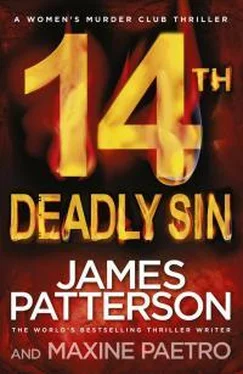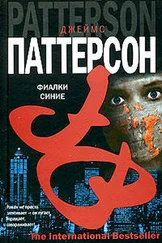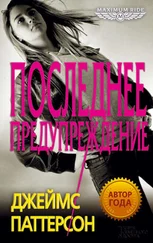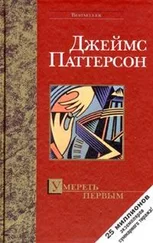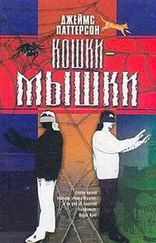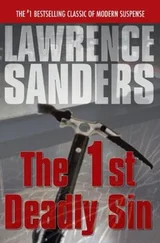That thought was just about intolerable.
He wanted to call Lindsay, but on the other hand, why ruin her day, too?
“Hey, Julie,” Joe said to his now fussing daughter. “Can you believe it? Daddy got fired. Over the phone. Bang. ”
Joe buckled the baby back into her sling, and she reached up and touched his cheek.
“I’m OK, Julie Anne. I’m thinking we should all go home now. I’m in the mood for a banana smoothie. Sound good to you?”
Julie looked like she was going to cry.
His little girl was mirroring his feelings.
Joe said, “OK, OK, sweetie. Don’t cry. We can come back and see the ducks later. We can come back every day into the foreseeable future. I can put peaches in that smoothie, all right? You like peaches.”
“I sure do, Daddy,” Joe said in his baby voice. He swept his gaze around the park and then stood up with Julie.
“You ready, Martha? That’s the girl.”
She woofed and jumped, so he gave her the full length of her leash till they were leaving the park, then pulled the lead in for the couple of blocks toward home.
By then, Joe wasn’t thinking of fruit and ice and yogurt. He was thinking of Findlay, pressing that gutless piece of crap through the blender.
CHAPTER 3
I WAS BEHIND my desk that morning as light streamed through the Bryant Street windows and slashed across the squad room’s linoleum floor.
My partner, Inspector Rich Conklin, was standing behind me to my right, and Chief of Police Warren Jacobi loomed impatiently over my left shoulder.
Jacobi had caught a couple of bullets in his leg and hip a few years ago and the injuries had aged him. He was fifty pounds overweight, his joints crackled and popped when he walked, and the pain had drained the fun from his salty sense of humor.
He grumbled, “Wait till you see this,” and handed me a disc; then he sighed loudly as we waited for my “lazy-ass computer” to boot up.
I slid the disc into the drawer. The drive whirred, and then a video, time-dated 3:06 this morning, appeared on my screen. The camera had been positioned under flickering streetlights in a nearly deserted block in the notoriously sketchy Tenderloin. The footage was grainy, shot with a cheap surveillance cam of the type used more as a prop than as a tool for actually identifying people.
“That’s Ellis Street,” said Jacobi. “And that’s what I call crud,” he added, stabbing a sausagelike finger at three figures entering the frame. The men wore black billed caps and navy-blue Windbreakers with white letters reading SFPD across the back. They also held automatic handguns as they headed smartly toward an all-night check-cashing store with a yellow sign above the window reading Payday Loans. Checks Cashed.
I straightened in my seat, then turned to shoot a look at Jacobi.
What the hell is this?
“Balls on these bastards,” he said. “Boxer. It’s hard to make out. Can’t you focus that picture?”
“What you see is what you get,” I said.
For long, gritty seconds, we watched the cops advance along the dark commercial street lined with low, blocky buildings. Then they converged on the lit-up storefront and went through the door in single file.
A moment later, the lights inside the store went out. The door burst open and one of the “cops” ran out with a satchel under one arm, followed by the other two men, who were carrying similar bags.
Now that they were heading toward the camera, I looked for facial features, something that could be run through facial-recognition software.
But the faces were all the same.
Then I got it. The bad guys were wearing latex masks that completely disguised their features. Seconds after leaving the store, the men in the SFPD Windbreakers had run out of camera range.
Jacobi said, “Christ. Someone please tell me that these men are anything but cops.”
CHAPTER 4
I FELT SICKENED at what I had just seen on the footage. Like Jacobi, I hoped we were looking at holdup guys with a bad sense of humor, not actual police officers pulling off an armed robbery.
I asked Jacobi, “Were there any fatalities?”
“One,” he said. “The owner wouldn’t give up the combination to the safe until he was shot to pieces. He managed a few words with the EMTs before he bled out on the floor. He said cops did it. The kid who worked for him was interviewed on scene. He said there had been about sixty grand in the floor safe.”
Conklin whistled.
Jacobi went on, “This is the second one like this. A few days ago, three men in SFPD caps and Windbreakers robbed a Spanish market. A mercado. No one died, but it was another big score. It goes without saying, these guys have to be stopped or every man and woman in uniform is going to take shit for this whether we deserve it or not.”
Conklin and I nodded, and Jacobi kept going.
“Robbery squad is already working the case, but I told Brady I want the two of you to work with them now that we’ve got a homicide.
“Boxer. You know Philip Pikelny, who heads up Robbery? Call him. You and Conklin work with his guys. This is the most important case in the house.”
“We’ve got it, Chief.”
Muttering to himself, Jacobi stumped out of the bullpen.
About now, Robbery would be canvassing Ellis Street and Forensics would be taking apart a check-cashing shop called Payday Loans. Checks Cashed. All we could hope for was a snitch or that this professional crew had left evidence behind.
I called Phil Pikelny and repeated Jacobi’s instructions. The sergeant told me what he knew about the case so far.
“The scene is still off-limits,” Phil said. “CSU has barred the doors until they’re done, which could be later today.”
Phil told me he would get us the footage of the first “Windbreaker heist,” the armed robbery of a mercado.
“It’s with the DA’s Office, but I’ll put in a request to get a copy to you ASAP.”
I called Administration and asked for time sheets for every cop at every rank in the Southern Station, thinking maybe we could at least make a list of cops who were off duty when those heists went down.
And for me, question number one was: Were these robbers really cops? Or just crooks in cops’ clothing? Either way, wearing police Windbreakers probably gave the robbers a few seconds’ grace before the victims knew they were being hit.
My good-doin’ partner made a breakfast burrito run and I put up a fresh pot of coffee in the break room. Then we settled into our facing desks, ready for a roll-up-your-sleeves desktop investigation.
CHAPTER 5
HOURS AFTER TALKING with Phil Pikelny, Conklin and I were still waiting for the DA’s Office to send over the video of the Windbreaker cops’ first known heist. I checked my watch. I could still make it. I told my partner I’d be back in a couple of hours.
“I have a date and I can’t be late.”
Richie opened his desk drawer, pulled out a slim, brightly wrapped package with a bow and a gift card, and handed it to me.
“This is for Claire. Try to bring me back some cake.” He grinned winningly. He’s a handsome guy who has somehow avoided becoming vain.
I took the gift, as well as the one I’d stashed inside my top drawer, then got my car out of the lot across the street. Two twisted streets and ten minutes later, I parked my ancient Explorer at the curb in front of the Bay Club. I put my ID on the dash. Then I walked around the corner to Marlowe, a fabulous eatery housed in a brick building with wine and food quotes etched on the large-paned casement windows.
I peered through the glass and saw Yuki and Claire in the back at a table for four. They seemed intensely involved in conversation, and from the looks on their faces, they were taking opposite sides. I came through the door into the bright, industrial-style interior, and Yuki spotted me right away. It almost looked like she was hoping for rescue.
Читать дальше
